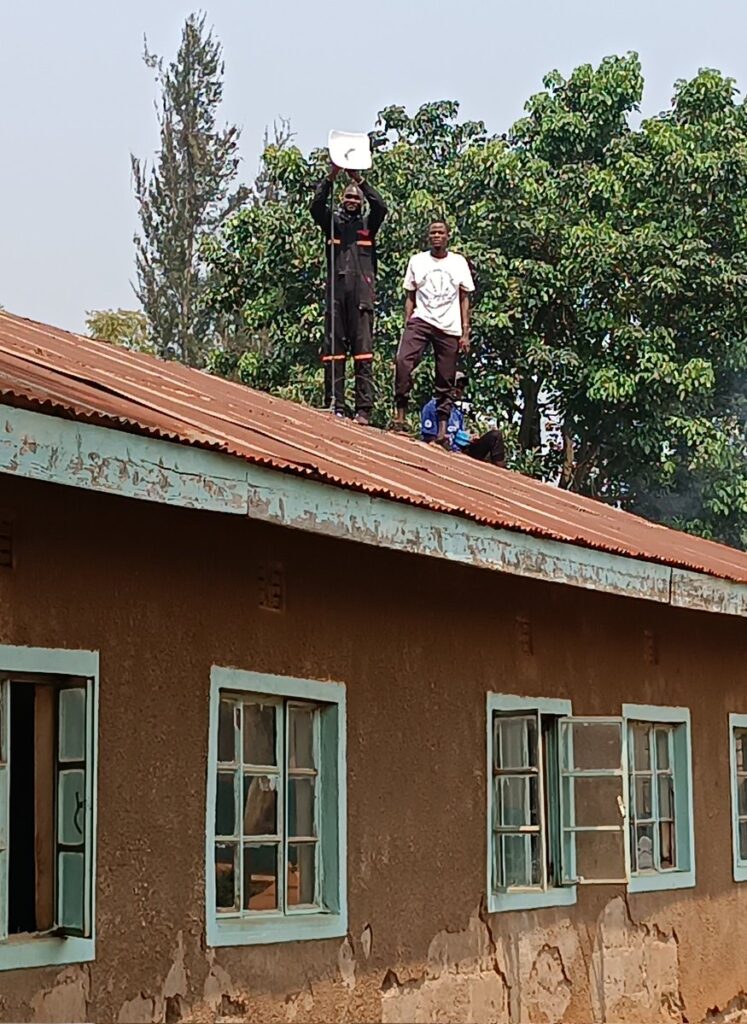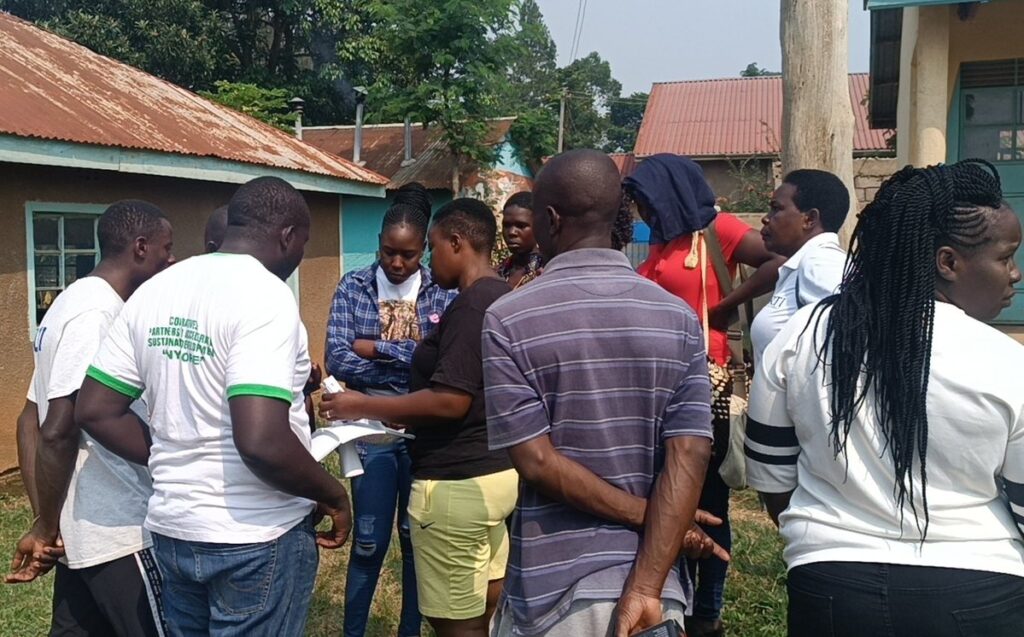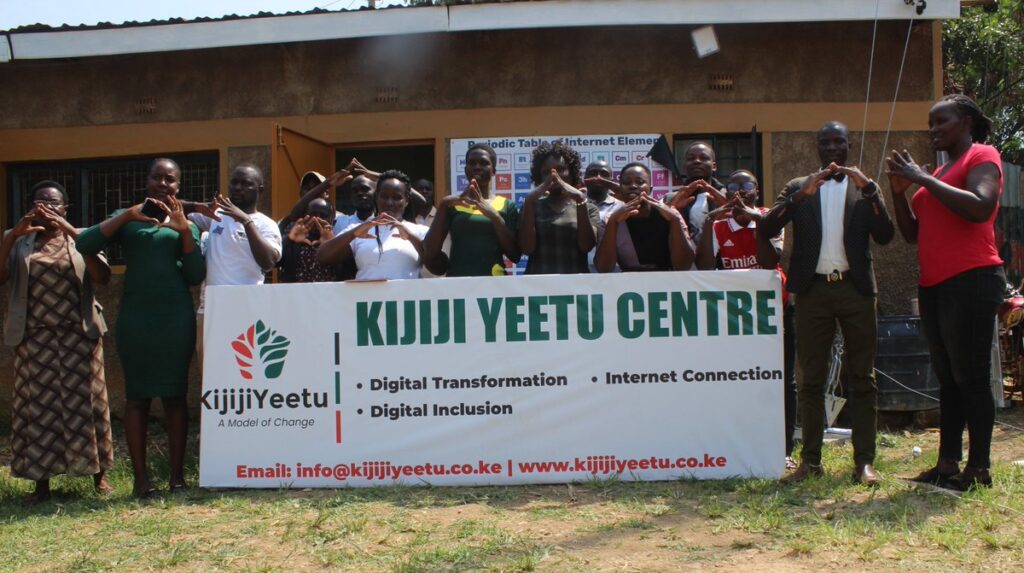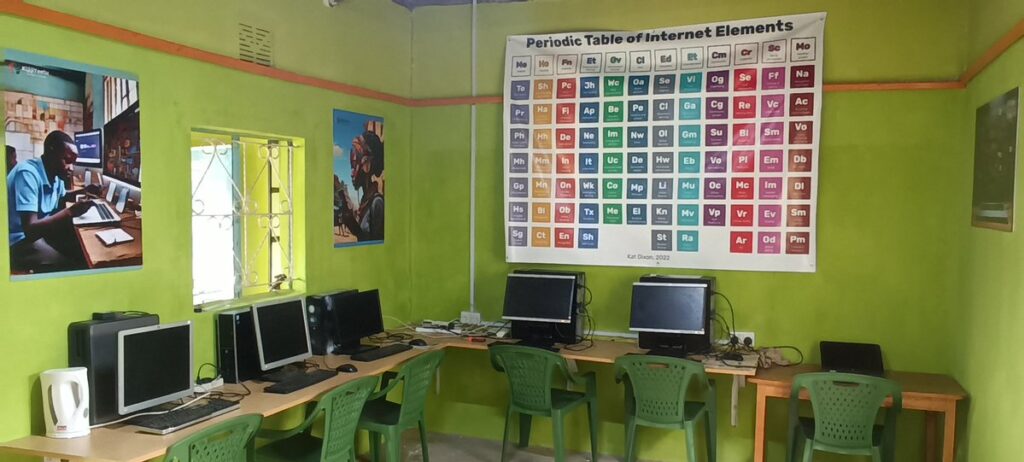ISOC Kenya’s Kijiji Yeetu Initiative in Ugunja, Kenya
ISOC Kenya is working on bridging the digital divide in Ugunja by providing the community with the internet and the necessary technology.


Ugunja, a rural community in the Siaya County region of Kenya, faces a digital divide that exacerbates social and economic inequalities, especially for vulnerable groups like women, young people, and special interest communities, despite the increasing importance of digital resources in the 21st century. ISOC Kenya Chapter is addressing this through setting up their own community network – Kijiji Yeetu. In this blog ISOC Kenya shares more about the project and how it benefits the community.
The digital divide in Ugunja
The digital divide in Ugunja is primarily due to limited access to technology and the internet, causing marginalized groups to struggle to acquire digital skills, access vital information, and connect with global networks, thereby widening the gap between them and more privileged communities. Recognizing the urgent need to address this digital disparity and empower underserved Ugunja residents, the initiative was born.
The primary objective of the project is to establish low-cost and secure connectivity in underserved communities in Ugunja, with the aim of enabling residents to access vital government services, educational resources, and business opportunities. The project will receive technical support from the Internet Society of Kenya and is expected to be completed by August 2024.

By the end of the project timeline, reliable and sustainable connectivity will bridge the digital divide and provide access to government services, educational resources, business opportunities, e-commerce, and online entrepreneurship to underserved communities in Ugunja.
Community needs and challenges
The Ugunja region in Siaya County, Kenya, faces numerous challenges such as insufficient rainfall, agricultural land shortages, climate threats, and digital skills gaps, which are exacerbated by these issues. There is a significant digital skills gap, with only 1.20% of residents having home computers, limiting exposure to modern technology and digital literacy, which hinders access to online resources, job opportunities, and educational materials.
The lack of access to Internet platforms and information exacerbates the social and economic problems in the area. The limited rainfall and agricultural land further complicate the situation, necessitating innovative solutions to overcome these challenges. Ugunja faces several challenges due to limited internet connectivity, including inconsistent, slow, and costly mobile networks from Safaricom or Airtel and unreliable modems used by government offices. This lack of internet access and digital skills hinders residents from taking advantage of the digital age’s benefits, such as online education, e-commerce, telemedicine services, and participation in the global digital economy. This limits the potential for economic growth and poverty reduction in the region.
The digital divide in Ugunja hinders development plans like the Siaya County Integrated Plan 2018-2022 and Vision 2030, which aim to improve residents’ quality of life. Limited internet connectivity affects government service delivery, leading to delays and inefficiencies. Initiatives to promote digital literacy and expand access to affordable internet services aim to bridge the digital skills gap, empower the community, promote economic growth, and advance sustainable development goals.

Capacity building sessions
The capacity-building and awareness sessions are designed to enhance digital skills in Ugunja, Kenya, with a focus on promoting internet connectivity through a two-part capacity-building program. The initial session concentrates on project scope and sustainability, while the subsequent session trains 20 community members as “net wardens” using a hybrid module-based approach that encompasses topics such as networking fundamentals and community involvement.
In Session 1, participants will delve into project scope, planning, objectives, stakeholder identification, budgeting, resource allocation, and the sustainable management of network infrastructure. The modules cover introductory concepts, project scope, sustainability, and long-term impact.
Session 2, titled “Net Warden Training”, aims to equip attendees with the technical competencies required for network management and upkeep. It covers essential networking principles, troubleshooting, cybersecurity, responsible internet practices, collaboration, community outreach, and active community involvement in network management. This will take place in Ugunja, Kenya and assessment will be conducted through quizzes and assignments, culminating in the development of a sustainability plan for internet connectivity. The course comprises two one-week sessions, each accommodating up to 20 participants.

The benefits for the community
The project aims to improve digital skills, sustainable internet connectivity, community empowerment, collaboration opportunities, online safety, economic opportunities, and access to vital services in Ugunja, Kenya.
Capacity-building sessions will equip community members with essential digital skills, making them more competitive in the job market and enabling them to access a wide range of online resources and opportunities. This increased digital literacy will have lasting benefits as technology continues to play a central role in various aspects of life and work. The project also ensures sustainable internet connectivity by training net wardens and focusing on sustainable network maintenance and management. This connectivity can serve as a catalyst for economic development, education, healthcare, and communication.

Active community engagement in network management and outreach will lead to greater self-reliance and the ability to address local challenges through technology. Building partnerships with local organizations and involving government officials fosters collaboration, strengthening the project’s sustainability and opening up opportunities for further development, funding, and support.
Teaching cybersecurity and responsible internet usage promotes online safety and privacy, protects community members from online threats, and encourages responsible online behavior. Long-term benefits of the project include improved digital skills, sustainable internet connectivity, community empowerment, collaboration opportunities, online safety, economic opportunities, and access to vital services.